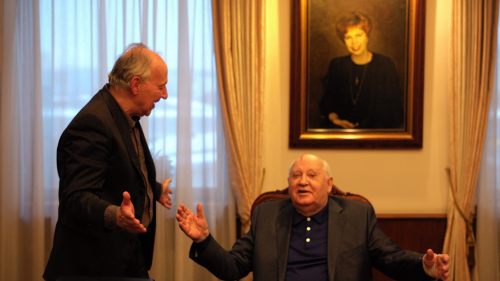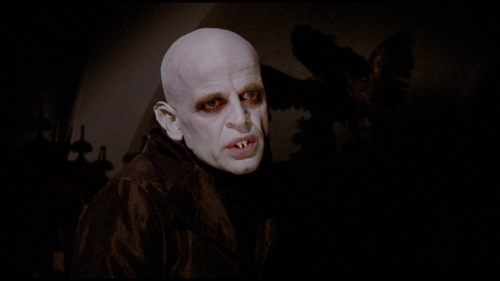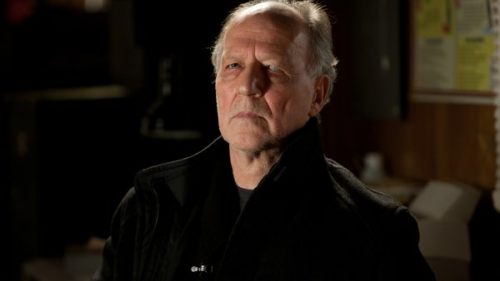Werner Herzog Talks Volcanoes And SALT & FIRE
Photo used per permission from Wikimedia Commons
I shouldn’t have to write an introduction for Werner Herzog. The man’s a living legend; an icon so towering that when I was offered the opportunity to interview him for Salt & Fire – his feature companion piece to last year’s volcano doc, Into the Inferno – I honestly wondered if I was even qualified to talk to Herzog about anything, let alone his own work. Of course, I wasn’t going to look this gift horse in the mouth, and immediately agreed to the invitation. A few days later, the phone rang and it was Werner, who had plenty of otherworldly wisdom to convey…
BMD: You have two films revolving around volcanoes now – the documentary Into the Inferno and Salt & Fire. Where did the fascination with these natural structures come from?
Werner Herzog: I don’t know. There’s something very cinematic about volcanoes. Originally, there was no volcano in the story Aral, on which [Salt & Fire] was based. It was originally supposed to take place in the middle of this dried-up lake. But it looked very boring there, and I was searching for different landscapes, and came up with the salt flats in Bolivia. A volcano just happened to be there – at the rim of these gigantic salt flats – and I thought that I should incorporate it into the story.
BMD: For years, your films have dealt with man and their relationship to nature. Do you think nature will kill us all eventually if we don’t respect it?
WH: I do not know if nature will kill us all. That is a question I cannot answer in such a broad, general sense. There is a visual fascination, though, with boiling lava, and the eruption of a volcano. However, volcanoes can pose a threat in certain regions – if they exploded, they would kill all that is in their path, really. But one could imagine a scenario in which a volcano did grow large enough to destroy humanity. It would erupt and obscure the sky, drowning us all in ash if we aren’t consumed by the fire first.
BMD: Well, I think I was getting at the volcanoes possibly being something of a metaphor within your films. With the way America is dismantling the EPA, we seem headed toward a disaster…
WH: We shouldn’t entangle American politics into this discussion, as the salt flats are also just as much a threat within the film – this fictitious ecological disaster that consumes a land we do not know ourselves. The movie, as I see it, is more science fiction than anything else. Humans race against this fictitious ecological disaster and there may be no way of stopping it at all.
BMD: You’ve worked now with Michael Shannon on numerous projects and I was wondering what the attraction was for you two to keep coming back to one another in a creative sense?
WH: I’ll keep it very simple for you – he is the best actor of his generation. The only actor I think even compares to him is perhaps Joaquin Phoenix. Michael has an authority on screen and a presence unlike anyone else I’ve ever seen.
But casting also comes down to chemistry, in the strictest sense. I needed to know that Michael and Veroica Ferres [whom Shannon’s character captures and questions for most of the film] were able to create a very captivating sense of drama with one another.
BMD: You’ve been making movies for fifty years now and I’m curious: how do you want your body of work to be looked upon once you’re gone?
WH: That’s hard to say, as I don’t necessarily want to step outside of myself in order to comprehend the perspective of others regarding my work. I try to avoid it. I’m still traveling on and fascinated by the world. I’m trying to get real storytelling across to all of my audiences because that’s all there is for me.
BMD: What’s continued to drive you forward and keep you entertained and engaged with the world?
WH: I read. It gives me great pleasure. I don’t see that many films.
BMD: You’ve been churning things out at quite the pace lately. Have you been pushing yourself to continue working?
WH: No. What I’m doing is simply trying to provide answers to those questions which burden me in the middle of the night – the ones that come screaming into my room through the window like madmen and will not allow me to rest. It all depends on which ideas are screaming at me with the most vehemence and which can be financed first.
BMD: With Salt & Fire what questions are you trying to answer for the audience?
WH: It’s hard to say, because I do not necessarily know my audience. It’s so wide-stretched, as my films now reach those in countries that I do not even consider at this point. Much of my audience is also very, very young. I’ll often get incredibly probing questions about my movies from fifteen-year-olds, and I never thought fifteen-year-olds would even watch my movies. I guess, it’s a fascination with the internet.
BMD: So, there is no such thing as a Herzogian demographic, huh?
WH: I just want to put out good stories, reach the curious, and be a good soldier of cinema.
Salt & Fire is in limited release and available on VOD.



